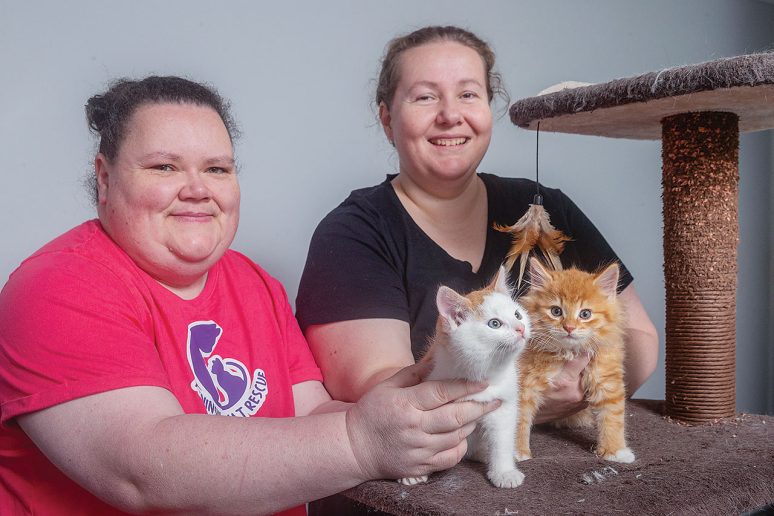THEY can be cuddly, cute and charismatic, but also one of the country’s most contentious animals.
Through no fault of their own, tens of thousands of homeless cats and kittens run wild in every corner of the country, hungry and homeless, and left to survive on their own resources.
However, a Mornington Peninsula volunteer-run animal welfare group is making inroads in the battle to rehome unwanted cats and litters, increase desexing rates and educate the community about responsible pet ownership.
Peninsula Cat Rescue president Sarah Beamish said one of the group’s main missions was to find homes for the hundreds of cats and kittens that are euthanised, abandoned, mistreated or abandoned every year on the peninsula.
“We aim to rescue as many of these animals as possible and provide them with a second chance,” she said.
“Through our network of volunteer foster carers, we are able to house, nurture and integrate them into a loving and safe family environment before adopting them out to loving permanent homes.”
Beamish said volunteers at Peninsula Cat Recue were animal lovers who realised that breaking the cycle of unwanted cats and kittens was a key to tackling the cat welfare crisis.
The group ensured all animals were desexed, microchipped, wormed and vaccinated before adoption, while all potential adoption families were screened to ensure the best homes are selected.
The group’s “last litter program” focuses on tackling dumping and abandonment and breaking the cycle of unwanted litters. It takes in mother cats and kittens from shelters and vets, or from owners who need help.
The best part of that, said Beamish, was that mother cats which had been burdened with multiple or early pregnancies never had to have another litter of kittens, meaning she would be “happier, healthier and live a longer life”.
Her kittens would also find homes but would not get pregnant or ill.
Foster carer and intake coordinator Anita Manning said kittens could become pregnant from four months of age, but because of the last litter program hundreds of kittens and mother cats had been given a chance to live a healthy life.
“It makes me sad to see the suffering of cats and kittens that need homes, so I get so much joy out of being part of this rescue group and providing a safe place for them,” she said.
“One of the biggest joys is seeing them go to a loving home.”
To foster or volunteer or find out more information about Peninsula Cat Rescue at peninsulacatrescue.com.au/ or facebook.com/peninsulacatrescue/
First published in the Mornington News – 25th July 2023


